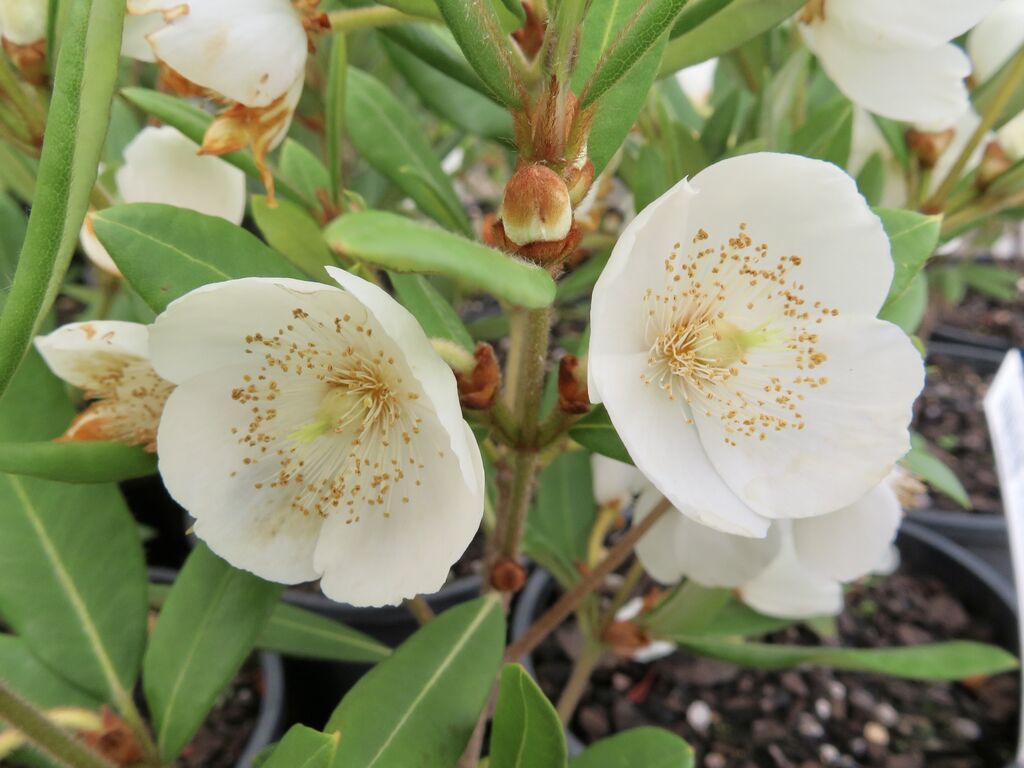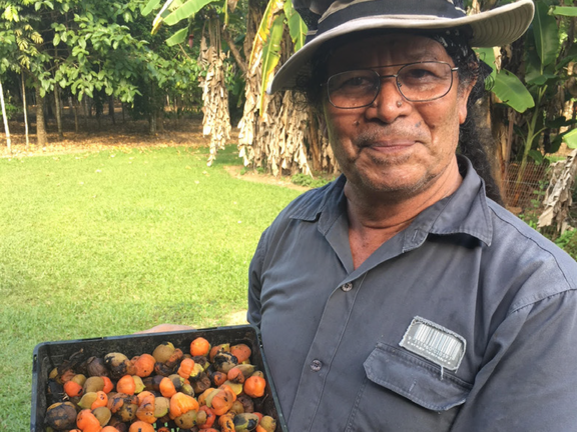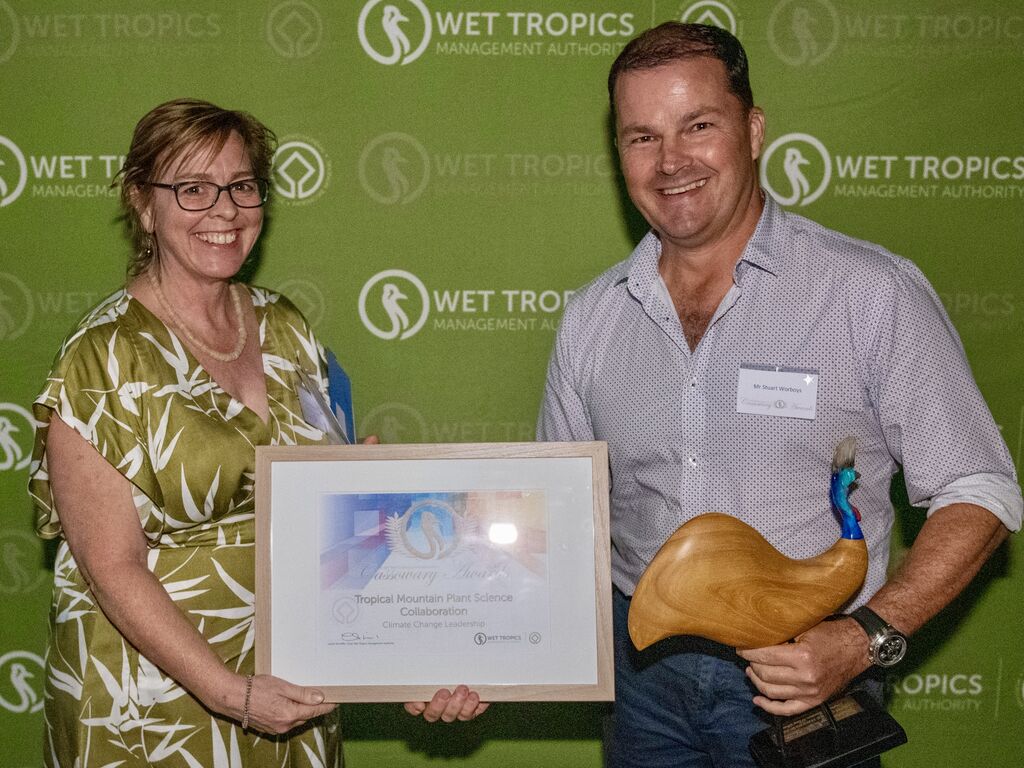
A unique project to cultivate seed banks of plants, found only on some mountain-tops in Far North Queensland, has been recognised in a local awards program.
The Tropical Mountain Plant Science Collaboration was one of ten nominees to take home gold at the Wet Tropics Management Authority's 18th Cassowary Awards on Saturday.
The annual Cassowary Awards are the only awards program in Australia to recognise and celebrate community contributions to world heritage management.
##BA##
Awards went to both people involved in grassroots work – including Adrian ‘Golly’ Watson whose replanting of native trees in the Daintree has earned him the moniker the ‘cassowary whisperer’ – to large multi-agency projects like the Tropical Mountain Plant Science Collaboration.
Winner of the Climate Change Leadership Award, the project gathers samples of at-risk plant species that grow only in mountain-top areas of the Wet Tropics.
These samples are then used to cultivate back-up reserves in conservatories across the country, including the Australian Tropical Herbarium (ATH) based at James Cook University Cairns.
Professor Darren Crayn, Director of the ATH, told Tropic Now the project is an insurance policy against the worst predictions of climate change.
“We identified that there were about 90 species of plants found only on these mountain-tops in the Wet Tropics and nowhere else in the world,” he said.

“Most of them are very restricted to that area and under some threat.
“These landscapes are some of the most at risk of climate change as there’s nowhere else for these plants to go when the planet warms up, whereas animals and plants in other areas can migrate south or to higher altitudes.
##PQ##
“They don’t tend to just die over time but their population will decline due to things like the availability of pollinators, animals that disperse their seeds, and the prevalence of diseases.
“This is why we need to act before we see the impacts of climate change.”
The project currently supplies seeds to seven botanic gardens in Australia, with plans to build climate-suitable conservatories at Cairns Botanic Gardens and Mossman Botanic Gardens.
Project collaborators include the Western Yalanji Aboriginal Corporation, Jabalbina Yalanji Aboriginal Corporation and the Queensland Parks and Wildlife Service, as well as seed bank organisations, botanic gardens and herbariums across the country.

The Authority’s Chair, Leslie Shirreffs, said the Cassowary Awards are a night to gather and pay tribute to champions of the Wet Tropics.
“These are people who work tirelessly towards not only protecting and promoting the outstanding universal value of the area, but also helping us build resilience into this unique and special place to adapt to the impacts of a changing climate,” she said.
“Choosing the 10 winners from the 40 nominees was no easy task as each of the nominees are valued and important members of the Wet Tropics community.
"Many of these people have dedicated years and even decades to ensuring the area thrives for generations to come.”
Cassowary Awards
Thorsborne Award for Community Conservation and Rehabilitation | Sponsor: Queensland Parks & Wildlife Service
- Winner: Lisa O’Mara
Tourism and Presentation | Sponsor: Skyrail Rainforest Cableway
- Winner: Kuranda Visitor Centre
Innovation and Research | Sponsor: Terrain NRM
- Winner: Dominic Chaplan
Education | Sponsor: Tropic Group
- Winner: Jodie Creek
People. Country. Culture. | Sponsor: Wet Tropics Management Authority
- Winner: Barry Hunter
Peter Hitchcock Community Champion | Sponsor: Queensland Water and Land Carers
- Winner: Adrian Watson
Government and Industry Initiatives | Sponsor: Powerlink
- Winner: Tablelands Regional Council Community Revegetation Nursery
Climate Change Leadership | Sponsor: Green Collar
- Winner: Tropical Mountain Plant Science Collaboration
Young Cassowary Award | Sponsor: Cairns Regional Council
- Winner: Mission Beach State School
Chair’s Award
- Winner: Tourism Tropical North Queensland




